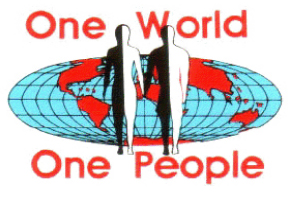Related Research Articles
Socialist Studies is the name of a quarterly socialist periodical and of the group which publishes it. The group was founded in 1991 by sixteen expelled members of the Socialist Party of Great Britain (SPGB) who claim that their expulsions were the result of an anti-socialist conspiracy. Though small, the group has remained an active and vocal critic of the SPGB since its inception.

The Socialist Party of Canada (SPC) was a political party that existed from 1904 to 1925, led by E. T. Kingsley. It published the newspaper, Western Clarion.
The Manitoba Labour Party (MLP) was a reformist, non-Marxist labour party in Manitoba, Canada. It was created in early May 1910 as a successor to the province's second Independent Labour Party (1906–08). Former Member of Parliament Arthur Puttee was a leading MLP organizer. The party fielded one candidate in the 1910 provincial election, and also ran candidates at the municipal level.
The Socialist Party of Manitoba (SPM) was a short-lived social democratic political party launched in 1902 in the Canadian province of Manitoba. The organisation advanced a moderate programme of social reform legislation. In 1904 the SPM became one of the constituent units founding the Socialist Party of Canada, an organisation which continued until 1925.

The World Socialist Party of India (WSPI) is an Indian political party founded in 1995.

The World Socialist Party of the United States (WSPUS) is a socialist political organization that was established in Detroit, Michigan as the Socialist Party of the United States in 1916 and which operated as the Socialist Educational Society in the 1920s before being renamed the Workers' Socialist Party. The organization reemerged in the 1990s and exists today as the American companion party of the World Socialist Movement.
The Socialist Party of British Columbia (SPBC) was a provincial political party in British Columbia, Canada, from 1901 to 1905. In 1903, the SPBC won seats in the Legislative Assembly of British Columbia.

Socialism in Canada has a long history and along with conservatism and liberalism is a political force in Canada.

Jack Fitzgerald was a founding member of the Socialist Party of Great Britain.
Valentine la Touche McEntee, 1st Baron McEntee CBE was an Irish-born Labour Member of Parliament (MP) in the United Kingdom.
The Socialist Propaganda League was a tiny socialist group active in London from about 1911 to 1951.
The Canadian Socialist League (CSL) was the first nationwide socialist organization founded in Canada. It originated in Montreal in 1898, but was strongest in Ontario and British Columbia. The leaders espoused a moderate socialism based on Christian reform principles. Members of the league formed provincial socialist parties. In 1905 these parties merged into the Socialist Party of Canada (SPC).
The Ukrainian Social Democratic Party (USDP), originally called the Federation of Ukrainian Social Democrats (FUSD), was a Ukrainian Canadian socialist political party that existed from 1910 to 1918.
The Socialist Party of Canada (SPC) is a socialist political party in Canada, affiliated with the World Socialist Movement.

William Arthur (Bill) Pritchard was a Canadian Marxist labour activist, organizer, editor, journalist, and politician. A major figure in the One Big Union movement, he also was one of the defendants in the 1920 sedition trial of leaders of the 1919 Winnipeg General Strike. Pritchard later was elected reeve (mayor) of Burnaby, British Columbia during the Great Depression and played an instrumental role in founding the BC Co-operative Commonwealth Federation.

The Socialist Party of Great Britain (SPGB) is a socialist political party in the United Kingdom. Founded in 1904 as a split from the Social Democratic Federation (SDF), it advocates using the ballot box for revolutionary purposes and opposes both Leninism and reformism. It holds that countries which claimed to have established socialism had only established "state capitalism" and was one of the first to describe the Soviet Union as state capitalist. The party's political position has been described as a form of impossibilism.
The World Socialist Movement (WSM) is an international organisation of socialist parties created in 1904 with the founding of the Socialist Party of Great Britain (SPGB).

The Western Clarion was a newspaper launched in January 1903 that became the official organ of the Socialist Party of Canada (SPC). At one time it was the leading left-wing newspaper in Canada. It lost influence after 1910–11 when various groups broke away from the SPC. During World War I (1914–14) the Western Clarion was internationalist and denounced a war in which workers fought while others profited. Following the Russian Revolution it adopted a pro-Bolshevik stance, The paper was banned in 1918, but allowed to resume publication in 1920. Its circulation dwindled as SPC membership dwindled, and the last issue appeared in 1925.
Moses Baritz was a British music journalist and socialist activist.